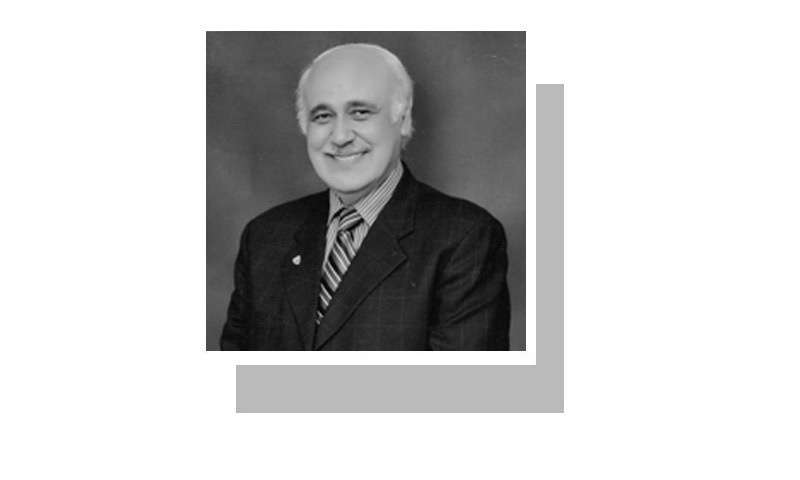IT has been a surreal spring. Suddenly, the world has gone mute. Gone the noisy combustion of our industrialised civilisation. Gone the repetitive cacophony of loudspeakers. Gone the drone of motorised traffic. Gone the scream of aircraft searing the sky. Instead, the only sound to be heard is the trilling of birds, announcing that they have reclaimed the skies.
Life has become an inversion of itself. It is like reading Rachel Carson’s book Silent Spring, upside down. For those who have forgotten, marine biologist Rachel Carson startled the world in 1962 with a dramatic warning to humanity against the unchecked, fatal use of chemical pesticides that “caused wholesale destruction of wildlife and its habitat”. Today, ironically, her fear of “a spring without voices” has been actualised, not because poisoned birds have fallen silent, but because stricken human beings have.
One casualty in a post-Covid-19 world should be the UN.
Her book was dismissed by the powerful chemical industry at the time as panic-mongering. She was dismissed as “a woman who wanted to turn the earth over to the insects”. Her assertions, however, were validated by a scientific panel appointed by president John F. Kennedy. Carson did not live long enough to see governments take action on her exhortations (she died in 1964), but her warnings still hang in the air.
Carson’s book opens with this quotation from her idol, fellow humanist Dr Albert Schweitzer: “Man has lost the capacity to foresee and to forestall. He will end by destroying the earth.” Even after 50 years of technological advancement, mankind’s eyesight has not improved. Man did not foresee the insidious supremacy of viruses nor forestall the devastating impact of Covid-19 on the world’s economy.
Social media would have us believe that warnings about Covid-19 were contained in pop-songs and in Japanese sitcoms where, even in translation, its threats were unmistakably overt. That is of scant satisfaction to us today. Our concern is not prescient scriptwriters but the timely responses of our leaders. This pandemic has exposed their incompetence and punctured their arrogance.
Dr Albert Schweitzer (the 1952 Nobel Peace Prize winner) had little time for governments. When he warned that “Man can hardly even recognise the devils of his own creation”, he meant not just industrial behemoths but international institutions, created by national governments on the assumption that such bodies would achieve, through collective action, what societies could not.
One casualty in a post-Covid-19 world should be the UN and its proximate bodies. They have demonstrated, by failing repeatedly, that they have forfeited global respect. Their loquacious infertility has become a model for other bloated bureaucracies to imitate.
Specifically, in the present crisis, WHO was expected to come forward as a flag-bearer, leading a concerted, coordinated action against the pandemic. Instead, it has behaved like a clucking agony aunt. Overpaid, underworked international civil servants have wrung their unsoiled hands and then washed them in sanitised bathrooms before issuing homilies to Third World countries like ours. WHO treats us like noticeboards, upon which to post unreadable bulletins and paste updated statistics about our infected and our dead.
The second casualty in a post Covid-19 world should be the armaments industry. Nothing has exposed the futility of global defence expenditure as this pandemic. Nor, tangentially, the ignorance of certain First World leaders. “God created war,” American humourist Mark Twain explained, “so that Americans would learn geography.”
US president Gen Dwight Eisenhower had seen war too closely to be flippant about it. He left the White House with words of caution about the dangerous “conjunction of an immense military establishment and a large arms industry”.
His successor President Trump, like the Bourbons, has learned nothing and forgotten nothing. His slogan ‘America first’ has yielded the US an unexpected, unwelcome lead in this macabre Covid-19 race. The US has overtaken Italy and Spain in the number of reported cases. Trump fears up to 200,000 deaths across the US. He knows coffins make poor ballot boxes.
Were Eisenhower, Schweitzer and Carson premature prophets or simply timely fools? Were they wrong then and right now? It doesn’t matter. Pandemics, like wars, do not “determine who is right – only who is left”.
In this viral maelstrom, it is useful to step outside history. Evolutionary biologist Dr Richard Dawkins tells us that life on earth evolved “some 10 billion years after the universe evolved out of literally nothing”. By its very nature, evolution, he said, never looks to the future.
Man, however, needs to, for the survival of his species. More important than human survival, though, is the restoration of balance between us and fellow occupants of this achingly beautiful world. Spring should be sounds, not a season.
The writer is an author.
Published in Dawn, April 2nd, 2020












































